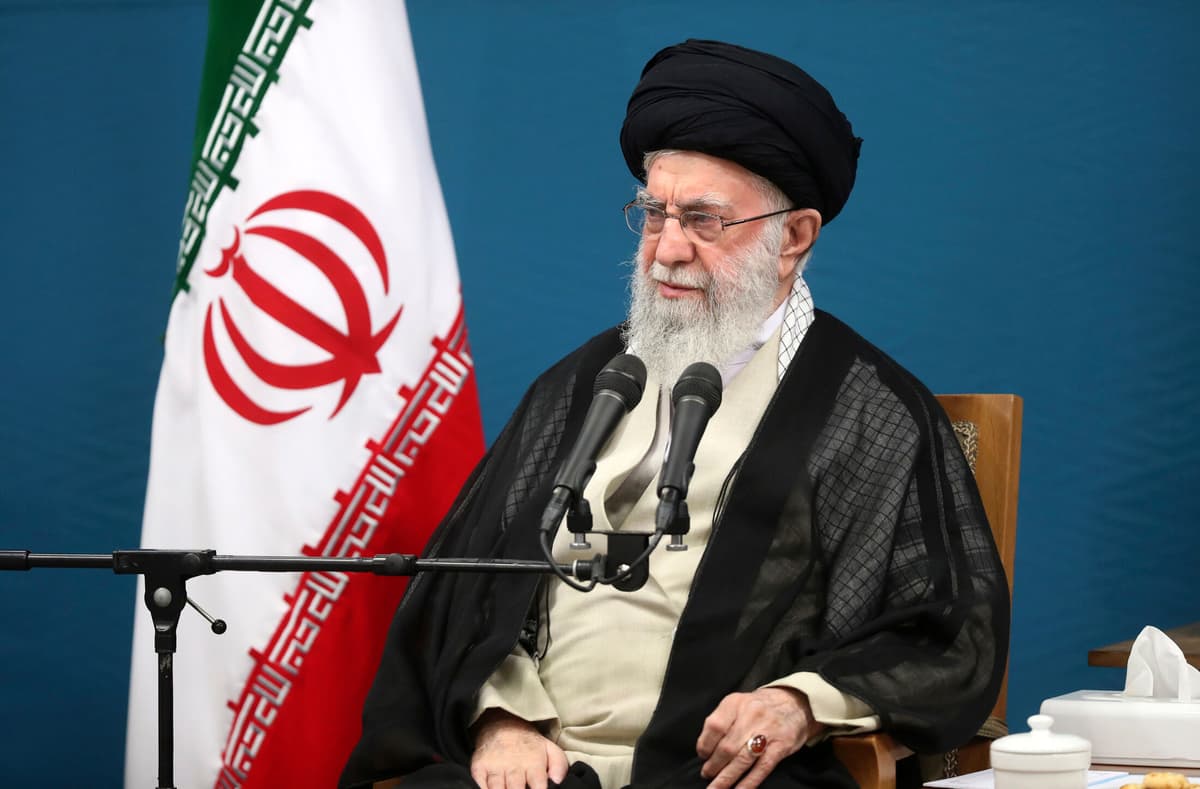Iran Floating Threats and Diplomatic Initiatives as UN Agency Gets Set To Censure the Islamic Republic Ahead of Trump’s Return
One problem area coming into focus is Parchin, where experiments on an A-bomb were under way until Israel attacked it last month.

As the Vienna-based nuclear watchdog is set to censure Iran next week for its evasion of inspections, the Islamic Republic is floating several threats and diplomatic initiatives, awaiting President Trump’s return to the White House.
When the International Atomic Energy Agency’s board of directors meets next Wednesday, three European countries — Britain, France, and Germany — will reportedly present a new resolution. It will call on the agency’s nuclear inspectors to issue a comprehensive report to identify “problem areas” in Iran’s cooperation with the IAEA.
One such could be a site at Parchin, which Israel bombed on October 26. In that installation, previously thought inactive, the Islamic Republic reportedly conducted secret experiments in weaponizing a nuclear device.
As the Sun reported on October 28, the Israeli strike “destroyed valuable equipment useful in further nuclear weapons development.” The strike hit an area at Parchin that IAEA inspectors had been barred from visiting. According to an Axios report on Friday, that area was destroyed by Israel on October 26.
At the site, the Iranians developed equipment to design “plastic explosives that surround uranium in a nuclear device and are needed to detonate it,” according to Axios. The activity at that Parchin site was so secret that only a handful of Iranian officials knew about it. One message the Israelis apparently conveyed is that their intelligence can penetrate every Iranian secret.
Prior to the retaliatory strike, President Biden warned Prime Minister Netanyahu not to hit Iranian oil installations or nuclear sites. Tehran, though, hid the Parchin activities, so if it complained, it would risk exposing its illicit activities.
“The more time we get away from the Israeli retaliation, the more sophisticated it appears,” an Iran watcher at the Foundation for Defense of Democracies, Behnam Ben Taleblu, tells the Sun. By going after an above-ground secret site with no fissile material, the Israelis “very cleverly squared the circle on the Biden red line.”
Also, it may be “time to revisit some very faulty assumptions,” the policy director at United Against Nuclear Iran, Jason Brodsky, writes on X. “Did Israel trigger a large-scale war in the Middle East after it struck an active Iran regime nuclear weapons research facility? Not yet.”
At Vienna, America is likely to support the proposed resolution during the IAEA board meeting, Reuters reports. Yet, as in a previous board meeting when Iran was censured, Washington will do so ever so reluctantly. It is concerned that pressure could force Iran to become a nuclear power. Tehran’s “reaction to a resolution could be limitations on diplomatic and technical cooperation” with the IAEA, an unidentified Iranian official told Reuters.
Iranian hawks increasingly talk about using the moment of a power transition at Washington to make the dash to a bomb. At the same time, other voices hint at renewed negotiations with the incoming Trump administration. Both sides seem eager to dissuade Trump from renewing his “maximum pressure” policy that marked his first term.
According to a New York Times report on Thursday, a Trump confidante, Elon Musk, met on Monday with the Iranian ambassador at the United Nations, Amir Saeid Iravani. The meeting was meant to “defuse tensions,” according to the report, which was sourced to “two Iranian officials.” There was no American confirmation that the goal was indeed to ease enmities — or even that the meeting took place.
In another attempt at a charm offensive, the Wall Street Journal reported Friday that Tehran on October 14 informed the Biden administration in writing that it wouldn’t seek to assassinate Trump. Although unsigned by any official, the Iranian letter was part of a secret diplomatic exchange between Washington and Tehran. American officials warned the Iranians earlier that attempts on Trump’s life would be a “red line” for Mr. Biden.
In August, federal prosecutors charged a Pakistani man with an alleged Iran-orchestrated plot to kill Trump and an Iranian-American anti-regime activist, Masih Alinejad. The Tehran letter, as vague as it was, seemed designed to coax Trump into a deal to avoid sanctions.
The “snap back” option at the United Nations Security Council is set to expire next October. If enacted before that, the measure would renew all global sanctions that existed before President Obama’s 2015 nuclear deal. Iran might be dangling the option of renewed diplomatic talks in order to get ever closer to next year’s expiry date.
Tehran seems to be banking on the Washington establishment to dissuade Trump from renewing the full-court pressure that characterized his first term. Bad-cop Iranian hawks threaten, while good-cop diplomats dangle a possible deal.
Tehran’s strategy is like “going into a casino and betting on everything,” Mr. Ben Taleblu says. Some will issue threats and others will make promises. “They will put all options out there to see how the world reacts.”

